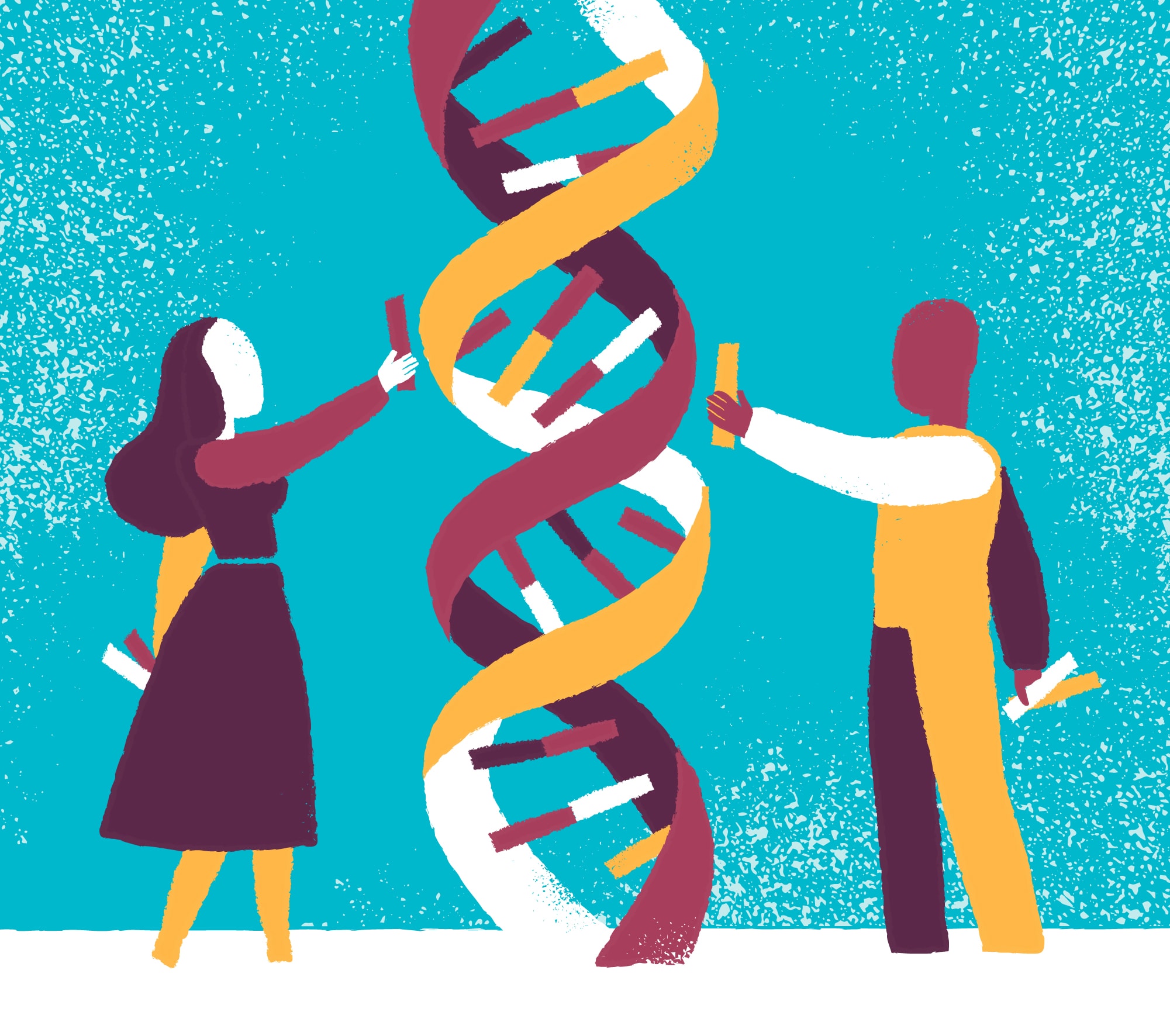
Unlocking the secrets behind weight gain can be a complex puzzle, with various factors at play. One significant aspect is our genetics, which play a crucial role in determining how our bodies store and regulate weight. In this captivating exploration, we will delve into the fascinating world of genetics and its impact on weight gain. By understanding your unique biological factors, you can gain insights that empower you to make informed choices and navigate your weight journey more effectively.
Section 1: The Genetics of Weight Gain
Our genetics form the blueprint of our bodies, influencing various aspects of our health and well-being. When it comes to weight gain, specific genes can predispose individuals to have a higher likelihood of gaining weight or struggling with obesity. Understanding the basics of genetics and their role in weight gain is key to unraveling this complex relationship.
Genetic Variants and Obesity
Research has identified several gene variants associated with obesity and weight gain. These genetic variations can affect factors such as appetite regulation, metabolism, fat storage, and response to physical activity. By understanding these genetic variants, individuals can gain insights into their unique susceptibility to weight gain and develop personalized strategies for managing it.
Genetic Factors in Metabolism
Metabolism, the process by which our bodies convert food into energy, is influenced by our genetic makeup. Certain genetic variations can impact metabolic rate, energy expenditure, and nutrient absorption. By identifying these genetic factors, individuals can tailor their lifestyle choices, including diet and exercise, to support optimal metabolism and weight management.
Fat Storage Genes
The distribution of body fat is influenced by genetics. Some individuals may have a genetic predisposition to store fat in specific areas, such as the abdomen or hips. Understanding the role of fat storage genes can help individuals develop targeted approaches to address these specific areas and achieve a more balanced body composition.


Section 2: Genetic Testing and Weight Gain
Advancements in genetic testing have made it possible for individuals to uncover valuable insights into their unique genetic profile. Genetic tests specifically designed for weight-related traits can provide information about genetic variants associated with weight gain, metabolism, appetite, and other factors. Interpreting genetic reports and understanding their implications can empower individuals to make personalized lifestyle choices based on their genetic predispositions.
Personalized Nutrition
One exciting application of genetic testing is its ability to guide personalized nutrition recommendations. Genetic information can provide insights into how individuals respond to different types of diets, such as those low in carbohydrates or high in fats. By tailoring dietary choices based on genetic predispositions, individuals can optimize their nutrition to support healthy weight management.
Exercise and Genetics
Another area where genetics plays a role is in individual response to exercise. Genetic testing can shed light on factors such as muscle fiber type, aerobic capacity, and recovery rate. Armed with this knowledge, individuals can customize their exercise routines to maximize their fitness gains and support weight management goals.
Section 3: Epigenetics and Weight Gain
While genetics provide a foundation, the field of epigenetics explores how environmental factors can influence gene expression. Epigenetic changes can occur throughout a person’s lifetime due to various factors, including diet, stress, sleep, and exercise. These modifications can impact weight gain and obesity risk, and understanding their influence can guide lifestyle choices for better health outcomes.
Beyond Genetics
Epigenetic modifications are not solely determined by genetics; they are influenced by lifestyle factors. Nutrition, physical activity, stress levels, and exposure to toxins can all affect epigenetic patterns. For example, a high-sugar diet can induce epigenetic changes that may increase the risk of weight gain. By adopting healthy lifestyle habits, individuals can positively influence their epigenetic patterns and mitigate the risk of weight gain.
Epigenetics and Stress
Chronic stress can have a profound impact on our bodies, including weight management. Studies suggest that stress-related epigenetic changes can affect metabolic processes and increase the risk of weight gain. Engaging in stress-reducing activities such as mindfulness meditation, yoga, or regular exercise can help counteract the negative effects of stress on epigenetic patterns and weight management.
Section 4: Nature versus Nurture: Genetics and Lifestyle Factors
The interplay between genetics and lifestyle factors is a critical consideration when it comes to weight gain. While genetics provide a predisposition, lifestyle choices can significantly influence whether those genetic factors manifest as weight gain or obesity.
Genetic Predisposition versus Environmental Factors
It’s essential to recognize that genetics do not solely determine our destiny. The interaction between genetic predisposition and environmental factors is key. Even individuals with a genetic predisposition to weight gain can mitigate their risk by adopting a healthy lifestyle that includes a balanced diet, regular physical activity, and stress management techniques.
Adapting Lifestyle for Genetic Advantage
Understanding your genetic predispositions can inform personalized lifestyle modifications. For example, if you have a genetic variant associated with a slower metabolism, you may need to pay closer attention to portion sizes and ensure you’re engaging in regular physical activity to maintain a healthy weight. By tailoring your lifestyle choices to your genetic advantages and challenges, you can optimize your weight management efforts.
Behavioral Changes for Weight Management
Knowing your genetic profile can motivate and guide behavior modifications for long-term weight management success. Armed with genetic insights, individuals can tailor their strategies to align with their unique biological factors. This may involve creating personalized meal plans, implementing exercise routines that suit their genetic response, and finding stress management techniques that work for them.
Empowerment through Knowledge
Knowledge of your genetic predispositions can empower you to make informed choices and embrace self-acceptance. Understanding that genetics is just one piece of the puzzle allows for a broader perspective on weight management. Emphasize self-care, body positivity, and a holistic approach to health that considers mental, emotional, and physical well-being.
So in conclusion the genetics of weight gain offer valuable insights into our unique biological factors that influence our susceptibility to weight gain and obesity. By understanding the interplay of genetics, epigenetics, and lifestyle factors, individuals can make informed choices and adopt personalized strategies for weight management. Embrace a holistic approach that considers nutrition, exercise, stress management, and self-care to optimize your overall well-being. Remember, you are not solely defined by your genes, but empowered to shape your health journey through conscious choices and self-compassion.


